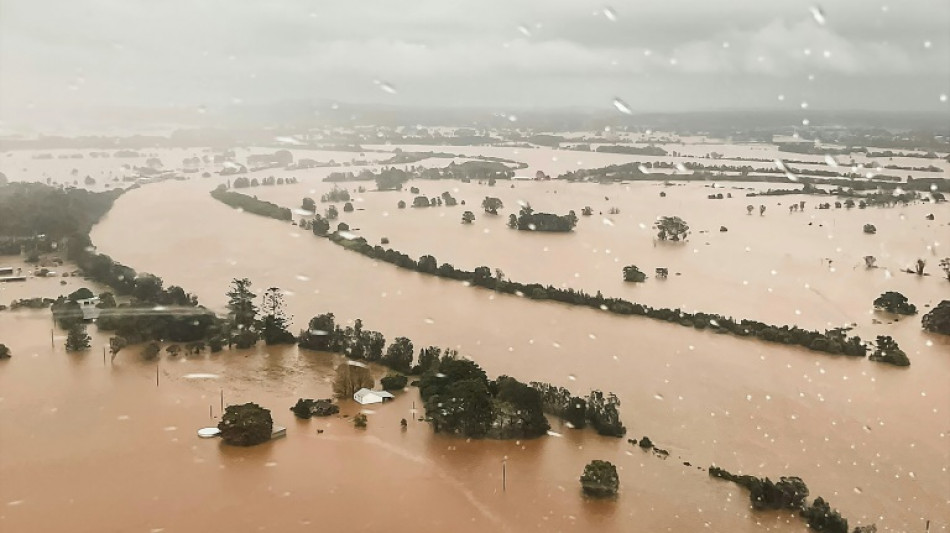
SCS
0.0200


Rising floodwaters stranded more than 50,000 people in eastern Australia on Thursday, as torrential rain pummelled water-logged towns for a second day and engorged rivers swallowed roads, leaving two dead.
Police have pulled two bodies from floodwaters on the Mid North Coast, a river-braided region of rugged hills and fertile valleys about 400 kilometres (250 miles) north of Sydney.
Authorities launched a major search and rescue mission as people clambered atop cars, houses and highway bridges to escape the tide of muddy water.
The storms have in some areas dumped more than half a year's worth of rain over just three days, the government weather bureau said.
"I must also say that we're bracing for more bad news in the next 24 hours. This natural disaster has been terrible for this community," New South Wales (NSW) state premier Chris Minns told reporters on Thursday.
The town of Kempsey -- a farming hub on the banks of the Macleay River -- had been cut off with little warning, Mayor Kinne Ring told AFP.
"You often think of rain on tin roof as relaxing, but at the moment it is deafening and horrible," Ring said.
"The downpours are torrential and every time it rains, you wonder what is going to happen next."
Ring said more than 20,000 people were isolated in her local government area alone.
About 140 kilometres south in the town of Taree, business owner Jeremy Thornton said the "gut-wrenching" flood was among the worst he had seen.
"It is pretty tough, we've had a few moments but you have to suck it up and push on," he told AFP.
"We are reliving it every second -- hearing the rain, hearing the helicopters, hearing the siren."
Authorities said more than 50,000 people were cut off with some rivers still to reach peak levels late on Thursday.
An elderly couple climbed on to the roof of their car to escape a fast-rising flash flood before a rescue helicopter winched them to safety, NSW police in Taree said in a statement.
Others sought sanctuary on a raised highway bridge before they were spotted and rescued by a navy Seahawk chopper.
Locals spotted dead cows washing up on beaches after swollen rivers swept them from their pastures inland.
The government has declared the emergency a natural disaster, unlocking greater resources for impacted areas.
Police said they were still searching for two people reported missing.
- 'Abnormally warm' -
From the arid outback to the tropical coast, swaths of Australia have recently been pummelled by wild weather.
The oceans surrounding Australia have been "abnormally warm" in recent months, according to the weather bureau.
Warmer seas evaporate more moisture into the atmosphere, which can eventually lead to more intense rains.
Although difficult to link to specific disasters, scientists warn that climate change is already fuelling more extreme weather patterns.
"I don't think there is a question that climate change is having a significant impact on weather events right across the world," emergency management minister Kristy McBain told reporters.
"In Australia, we're not immune to that. We're seeing more devastating events like this happen more frequently."
About 2,500 emergency workers have been deployed to the region, alongside rescue boats, a fleet of helicopters and hundreds of search drones.
"We aren't over the worst of it yet," McBain said.
Bureau of Meteorology spokesman Steve Bernasconi said some towns had recorded more than half a metre (1.6 feet) of rain in the space of three days.
But he said rain was expected to slowly taper off late Thursday night when the weather system moved south.
U.Chen--ThChM